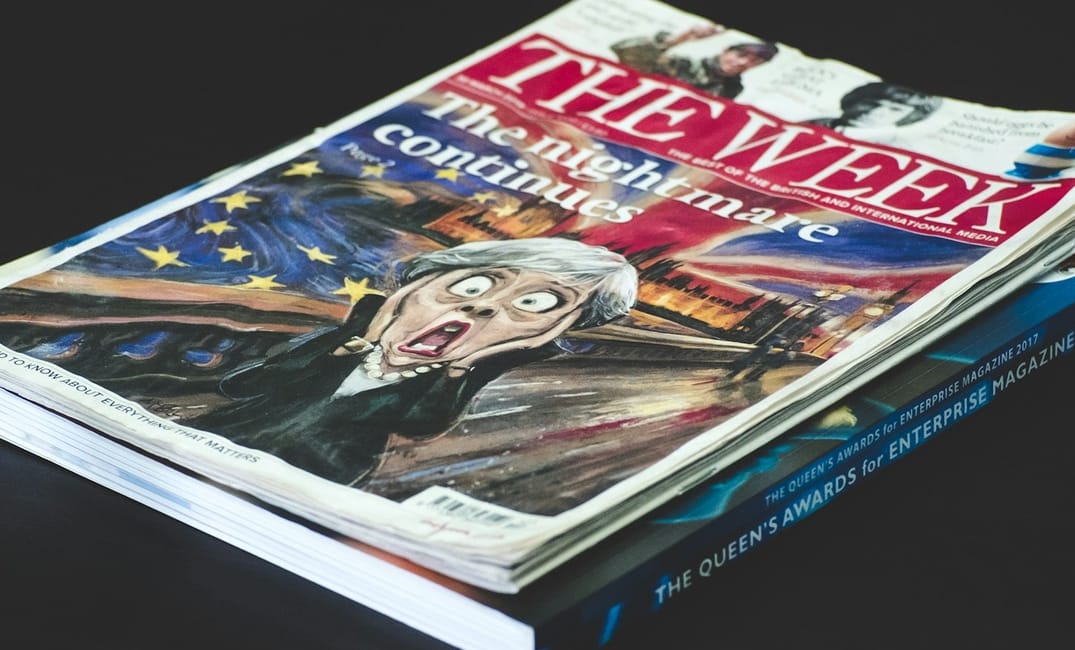What would your ideal political leader be like? Are they decisive, intellectual and dominant, or moody, indecisive and emotional? In today’s society, the former attributes are seen as masculine whilst the latter are seen as feminine. This creates a clear association between weak leaders and women. So what causes the gender imbalance in political leadership positions?
Acknowledging and challenging prejudice is crucial, as it prevents a cycle of unrepresentative men continuing to be elected for roles in power. This can be seen as the number of women in Parliament (34% in the House of Commons) has remained disproportional to the female population in the UK (50.8%).
The sexist implications in our society which are maintained through language and stereotypes mean that women feel inferior to men and less ambitious in their careers. For example, when young girls want positions of power they are teased for being “bossy” or “pushy”, which are both derogatory words often used for females, which lead to them having 27% less confidence than boys by the time they hit puberty.

Another major reason why women are not mobilised to have successful political careers is that inequality is mainly addressed by the government once women already have political positions, through schemes such as the Workplace Equality Network instead of creating more opportunities to get women involved in the first place and finding solutions.
If women do run as an MP, the issue of females stereotyped as incompetent leaders continue. If constituents are unaware of their prejudice and still subconsciously believe in female inferiority, the political journey will remain harder for women than for men.
These gender preconceptions are evident when looking at recent Prime Ministers and their portrayal by the media when news stories focus on their persona, rather than their political policies. When we compare Theresa May and Boris Johnson, we see that they have many similarities; these include both being part of the Conservative Party, dealing with tensions regarding Brexit and both facing immense media scrutiny. However, the media was quick to focus on May’s fashion sense (those infamous kitten heels) and her failure to pass a Brexit Bill (with newspaper headlines reading Time’s Up May). The most shocking one by far was the Metro headline ‘Just Tell Her, Phil’ (May’s Husband) yet again reinforcing the stereotype of an incompetent wife who needs a stern and dominating husband to tell her what to do.
Whilst media portrayals of Boris Johnson has not been perfect, the headlines after he was elected maintained attributes often associated with men, such as a cool and collected nature (Such as the Australian Story “Keep Calm and Carry On”), in direct contrast to the hotheaded character portrayal of May. Looking at previous stories about Johnson when he held the position of Mayor of London, they often focused on outdated, prehistoric portrayals of men as savage providers (“Boris Goes In For The Kill”, again using stereotypes of men as natural leaders.

So it’s less surprising, but yet still infuriating that 419,000 sexist slurs including the words “bitch” or “whore” are used per day on Twitter by people, as they are constantly surrounded by a clear patriarchal message from the media. This fuels people’s subconscious gender prejudice in all aspects of life, including who you vote for. So what are some ways that we can tackle the issue of gender inequality in politics?
Get your facts, inform and change. Facts are crucial as they are the foundation for any solid argument. Get equipped by reading reliable sources such as BBC News or watching videos such as former Australian PM Julia Gillard’s misogyny speech.
Once you grasp the issue, start a conversation about political inequality. It is important that all genders are involved in the discussion, as attacking men is much less effective than tackling the issue and talking about it together.
Actions are worth more than words. To create a campaign and make a difference, start locally, such as encouraging people in your schools, universities or workplaces to avoid using sexist slurs and then size up by getting involved with organisations fighting for gender equality such as Men Engage Alliance and Rise Up who they focus on mobilising people to make a change.The issue of gender inequality in politics can be solved, as ultimately the government serves its citizens. If we encourage people to question their subconscious prejudice when voting, the diverse government created will recognise and follow our lead into an equal democracy for all.
Thanks for reading our article! We know young people’s opinions matter and really appreciate everyone who reads us.
Give us a follow on Instagram, Twitter and Facebook to stay up to date with what young people think.

